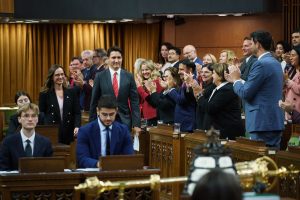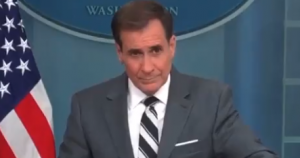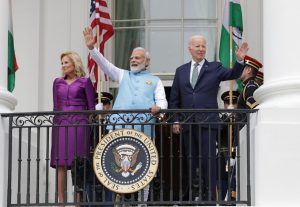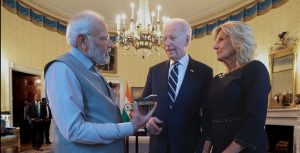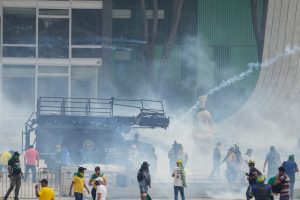Prime Minister Narendra Modi is on an official visit to Bangladesh, his first to a foreign country since the pandemic began. The prime minister’s remark that he did satyagraha for Bangladesh’s freedom has led to the Opposition asking for the proof of his participation and the BJP asserting that the claim was true.
Let’s find out if the Opposition’s reaction is a bit of an overreaction or is PM’s “Satyagraha for Bangladesh” claim unsubstantiated?
What PM Modi said
Dressed in ‘Mujib Jacket’ to pay tribute to Bangladesh’s Father of the Nation Sheikh Mujibur Rahman, PM Modi at the National Day ceremony in Dhaka said, “We were all disturbed to hear about the atrocities being done by the Pakistani Army on the people in then East Pakistan, pictures were disturbing too, and the freedom struggle of Bangladesh was a significant moment in my journey too…I was in my 20s then. My colleagues and I had done a satyagraha in India.” The Prime Minister was apparently referring to the Gana Satyagrah organised by the Jana Sangh, the ideological predecessor of the BJP, in August 1971.
Also read: To free human race from COVID-19, PM Modi offers prayers at Jeshoreshwari Kali temple
Citation that partially backs PM Modi’s claim
In June 2015, Bangladesh conferred the prestigious ‘Liberation War Honour’ on Atal Bihari Vajpayee. As the BJP veteran, then 90, could not attend the event, the award was received on his behalf by PM Modi. The citation hailed Vajpayee as a “highly respected political leader” and acknowledged his “active role” in support of the Liberation War of Bangladesh in 1971.
“The people of Bangladesh would always remember the significant contributions made by Shri Atal Bihari Vajpayee towards supporting the cause of Bangladesh’s Liberation War and consolidating friendship between Bangladesh and India,” read the citation of the award.
Also read: 4 shot dead in Bangladesh after violence erupts over PM Modi’s tour
It also substantiated PM Modi’s claim of Satyagraha by Jana Sangha, who he says he was part of in his early twenties. “To press the demand for India Government’s expedited support to Bangladesh’s Liberation War, Jana Sangh held a Gana Satyagraha during 1-11 August and their volunteers organised a huge rally in front of the Indian Parliament House on 12 August 1971,” it read.

BJS, founded on October 21, 1951, was one of the strongest voices that called for the creation of Bangladesh. It gave its full support to then Prime Minister Indira Gandhi, and also mobilised the public opinion on the atrocities by the Pakistan army.
It is said that an enemy’s enemy is a friend and that’s what happened in this case. Otherwise on the opposite sides, the then Sarsanghachalak ‘Guruji’ Golwalkar, according to an article in the Wire, wrote to Indira Gandhi after the 1971 victory.
“In the creation of the strength of national unity infused with national pride, the Rashtriya Swayamsevak Sangh is and will always be with you. I have confidence that as the representative of the country you will take all these factors into consideration while determining our domestic and foreign policies. May the prestige of Bharat grow like this under your leadership,” the letter read.
Five decades ago, on March 25, the Pakistan army led a genocidal crackdown in Dhaka, which led to the Liberation War, and eventually the creation of Bangladesh. India initially provided diplomatic, economic, and military support to Bangladeshi nationalists – referred to as the ‘Mukti Bahini’ (“liberation army”)- but later joined the war officially on December 3, 1971, following a series of preemptive airstrikes by Pakistan. Just after 14 days, the Pakistan army had to surrender on December 16, 1971.

